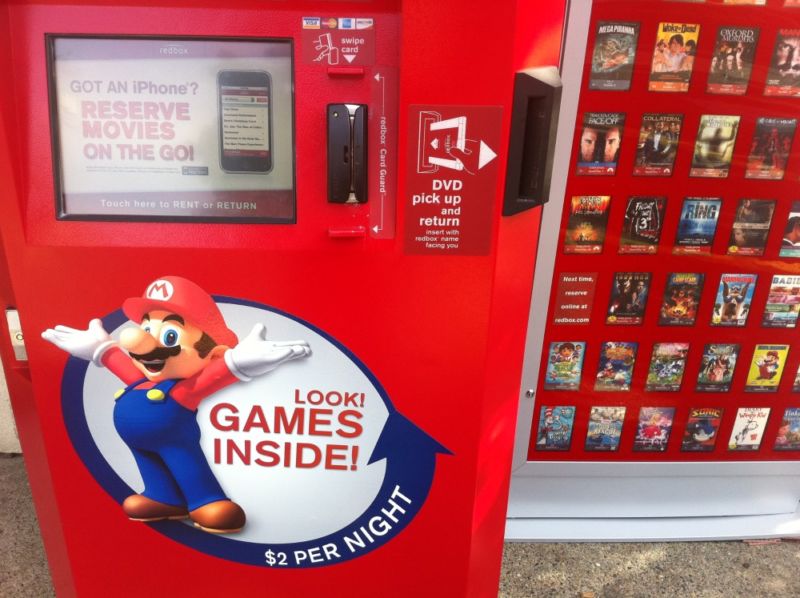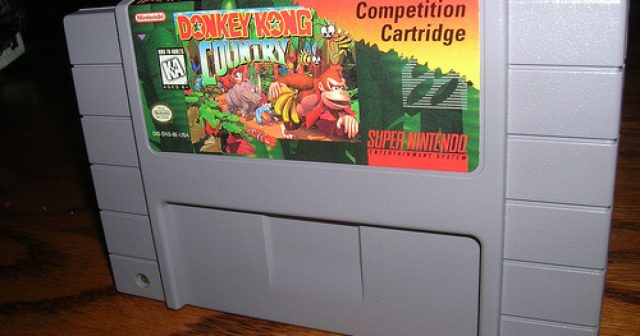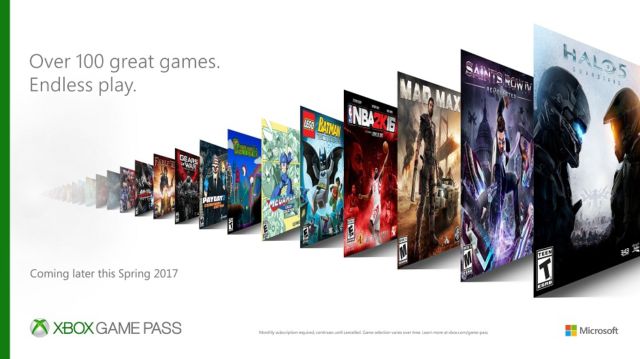
On Monday, Redbox confirmed to The Verge that it was "permanently transitioning out of the games business." That means Redbox would remove the option to rent physical game discs from its thousands of self-serve kiosks (Redbox game sales will still be available through the end of the year).
For many in the United States, Redbox kiosks had been the only convenient way to rent games ever since rental mega-chain Blockbuster went belly up over the course of a decade (along with most of its smaller brick-and-mortar competition). GameFly still offers a rent-by-mail service, but that service's monthly subscriptions and long postal wait times mean those loans are not much like just going down the street and paying a few bucks to sample a game for a few days.Redbox's decision to exit the game-rental market, just as the 2010s come to a close, marks a poetic and somewhat anticlimactic end to a practice that has been in a steep decline for well over a decade now. Like using a slide rule or blowing into a Nintendo cartridge, renting physical games is a practice we'll harbor nostalgia for even though it's not necessary anymore (assuming you have good-enough Internet access, that is).
A brief history of video game rentals
Video game rentals can trace their lineage back to the late '80s, when stores that loaned out a flood of new VHS movies started adding NES software to their shelves as well. But while a movie studio could control when a theatrical release would hit the home video-rental market, video games could appear on rental-store shelves the very same day they were available for sale.
In David Sheff's seminal history book Game Over, Nintendo of America's then-chairman Howard Lincoln called this state of affairs "nothing less than commercial rape" for the video game industry.
I can spend thousands of hours and millions of dollars creating a game. I expect, therefore, to be compensated every time the thing sells. All of a sudden, out of the blue, comes a system that distributes my game to thousands of people and I get no royalty. The video-rental companies exploit the thing—renting it out over and over again, hundreds and even thousands of times—and I get nothing. The guy who developed the game and Nintendo get screwed. What does the guy who's renting the cartridge contribute? What does he pay in terms of a royalty for the commercial exploitation of copyrighted work? Zip.
While a Japanese copyright law allowed Nintendo to prohibit the rental of its games in that country, the first-sale doctrine allowed such rentals to flourish in the United States. In 1990, the Computer Software Rental Amendments Act cemented the right to rent out console video games while also barring the rental of computer software (which is more easily copied).
Lincoln pushed for a compromise bill that barred console game rentals for a year after their release, but it died in legislative committee. Nintendo also tried to sue Blockbuster for copyright infringement over its use of photocopied game manuals in game rental boxes, but the case was settled out of court, and Blockbuster just started writing its own instructional copy for games instead.

With the legal path cleared, game rentals became anywhere from 10 to 40 percent of most rental stores' business, according to industry estimates. For Blockbuster, the game-rental market got big enough that the chain started hosting annual video game competitions and offering exclusive game rentals that couldn't be purchased in stores (copies of which are now sought-after collectibles).
The presence of a robust rental market rippled profoundly across game development, too. Game magazines at the time would decry mediocre games by saying they might be "worth a rental" to check out, hurting sales and helping rental stores at the same time. To avoid the sales-dampening phenomenon of players renting and beating a game in a single weekend, the invisible hand of the market started encouraging developers to make their games longer, harder, and too complex to be fully appreciated in a single rental period.
The bigger they are...
Like so many other relics of the physical-media age, the game-rental era was destroyed by the Internet. The rise of digital distribution on game consoles is what, specifically, put it to pasture. On the Xbox 360 and PlayStation 3, free downloadable demos quickly started to fill rentals' position as the preferred method of "try before you buy" access for most titles (and for most players). Since then, the online market has evolved to the point where a $10 monthly charge can get you unlimited access to hundreds of console games.
How is a single-game rental supposed to compete with that? And how is a small rental kiosk supposed to compete with the practically unlimited selection of a digital storefront?
More than distribution, though, rentals are a product of a somewhat bygone era in game design. The whole idea of a rental made more sense when the vast majority of games were designed as single-player adventures with a defined beginning and an unambiguous end. That style of gaming might not be dead quite yet, but it has definitely started giving way to the popularity of never-ending online competitions like Fortnite, Overwatch, Rocket League, and countless others. These are games that are designed to be played (and perfected) forever, not just sampled during a short rental period.Plus—with such a glut of quality games available on a free-to-play basis (or via deep digital discounts shortly after launch)—the idea of paying for just a few days with a title starts to make less and less sense. And then there's the issue that more and more people just don't want to bother with leaving the house to get games on physical media at all, a problem retailers like GameStop know all too well.

Sony made a half-hearted attempt to bring game rentals into the Internet age with the 2014 launch of PlayStation Now, which sold time-limited streaming access to individual games. But the pricing for those rentals was so ridiculously expensive that Sony was forced to backtrack just a few months later by offering all-you-can-play subscription streaming instead.
Meanwhile, some businesses and digital libraries have tried to exploit legal gray areas to offer the digital equivalent of retro game rentals via ROM emulation.Even though I haven't actually rented a game in years, I still have fond memories of the practice. Browsing the game-filled shelves of my local rental store was a joy, and I loved examining the mysterious boxes front and back, knowing that I could sample any one I wanted for just a few bucks (rather than paying the extremely high purchase prices of the day). Hardware rentals were how I got to try out the Virtual Boy and TurboGrafx-16, even though I'd never own them as a child, and cartridge rentals were the cheap loophole that let me experience Super Mario Bros. 2 months before I could get it as a birthday present.
With Redbox leaving the market, renting video games will become one of those weird things I tell my daughter about when she wants to know how the world used to work "when I was your age." For today, though, we'll mark the end of an era we barely noticed had already slipped into the realm of history.
https://arstechnica.com/gaming/2019/12/mourning-the-end-of-the-video-game-rental-era/
2019-12-11 11:45:00Z
CBMiVWh0dHBzOi8vYXJzdGVjaG5pY2EuY29tL2dhbWluZy8yMDE5LzEyL21vdXJuaW5nLXRoZS1lbmQtb2YtdGhlLXZpZGVvLWdhbWUtcmVudGFsLWVyYS_SAQA
Bagikan Berita Ini














0 Response to "Mourning the end of the video game rental era - Ars Technica"
Post a Comment